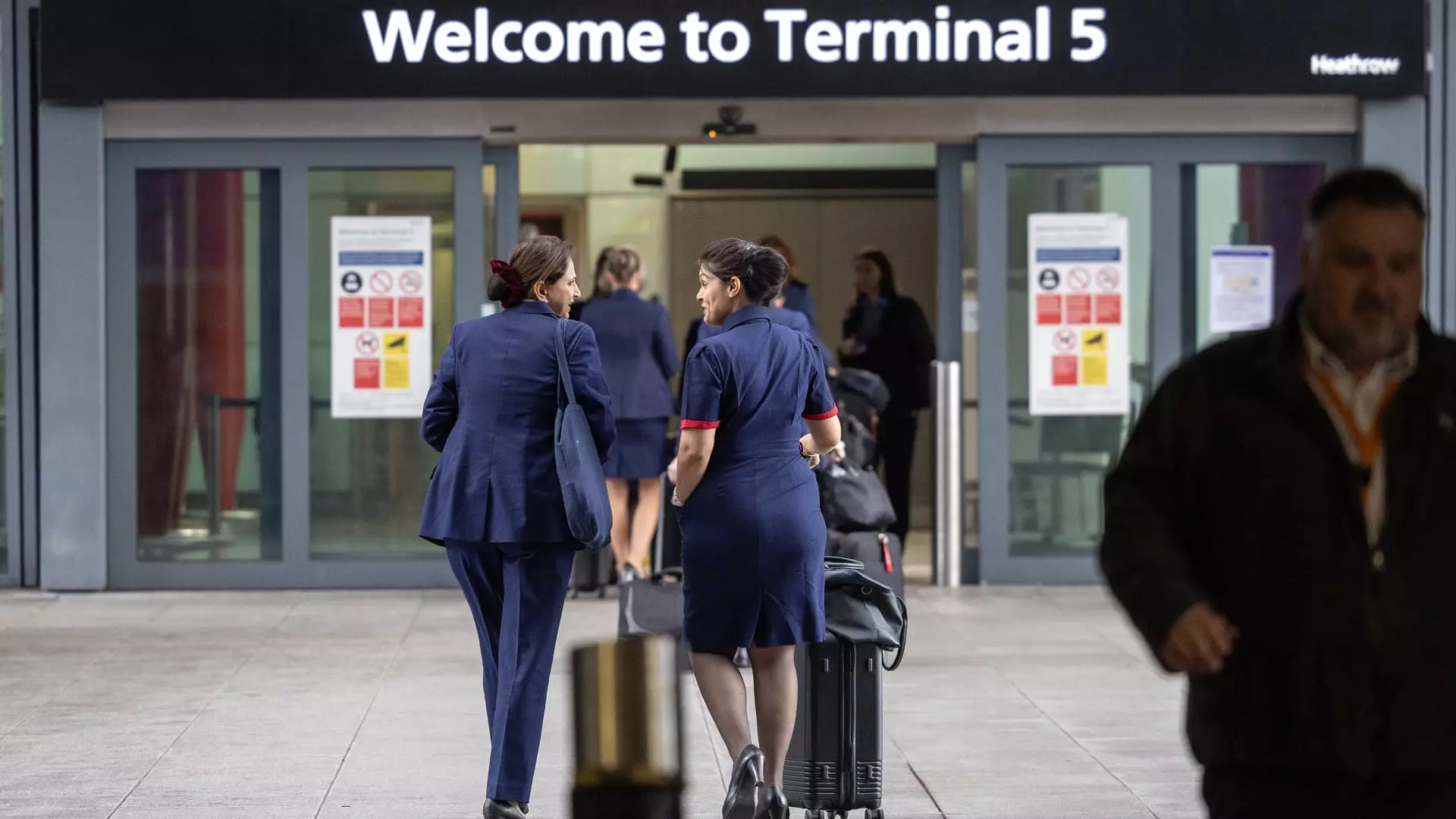London’s Heathrow Airport, renowned as Europe’s busiest air transit hub, faced an upheaval that brought operations to a standstill, disrupting the travel plans of thousands. This incident, precipitated by a power outage following a fire at a nearby electrical substation, resulted in the cancellation of over 800 flights. Passengers who had made plans were left stranded, their journeys abruptly halted because of a failure in infrastructure that many consider pivotal to the smooth operation of an international airport.
On the surface, the response to the situation might seem commendable, with the airport reopening its doors shortly after the power was restored. However, the fallout of such disruptions raises critical questions about the reliability and resilience of crucial infrastructure. While the reopening is a positive step, it doesn’t absolve the responsibility that must be shouldered by both airport management and utility services to anticipate and mitigate such potential risks. The reality is that this incident serves as a reflective moment—not just for Heathrow, but for other global airports that rely on singular energy sources for their power supply.
Response from Authorities and Airlines
British Airways, the airline significantly affected by this crisis, communicated that it would resume the majority of its scheduled flights, but with the expectation of delays. Their candid acknowledgment that recovery is a “complex” endeavor underscores the challenges inherent in restoring a fully functional operation after a disruptive event. Notably, they extended flexibility to impacted travelers by waiving rebooking fees, highlighting a customer-first approach during the turmoil.
Conversely, the utility company National Grid made it clear that it has a responsibility to improve the resilience of its network. The assurance of restoring power comes with an implicit promise to review protocols further. However, merely offering apologies is insufficient; proactive measures should have been in place long before the incident occurred to ensure uninterrupted service.
Investigations Unfold
Compounding the situation is the involvement of London’s Metropolitan Police, which has launched an investigation into the fire’s circumstances. While police sources have indicated there is “no indication of foul play,” the fact that the counterterrorism division is leading the investigation speaks volumes about the potential ramifications of such infrastructure failures. It illustrates societal paranoia over critical infrastructure vulnerabilities, and rightly so. When national security—particularly in sensitive areas such as airports—is in question, it necessitates a thorough investigation to provide the public with answers and assurances.
Financial Repercussions and Accountability
Former CEO of IAG and current CEO of IATA, Willie Walsh, doesn’t mince words regarding the financial implications stemming from this event. He criticized Heathrow Airport for what he termed a “total planning failure.” The outcry for a “fairer allocation” of passenger care costs rings true in the context of travel: when infrastructure fails, the burden shouldn’t solely fall on the airlines that abide by the fluctuating whims of such events. This points to a broader conversation about accountability. In instances of systemic failures, those responsible must not just express regret but also take actionable steps to prevent future occurrences and ensure mitigating measures are in place.
A Wider Reflection on Infrastructure Security
The broader implications of this incident may extend far beyond Heathrow’s operations. Public interest in disaster preparedness and response has surged, and this event amplifies the urgency of dialogue about infrastructure resilience not just at airports, but across various sectors. The heavy reliance on singular power sources can no longer be considered sustainable; redundancy is key to facing the array of challenges posed by emergencies—be they natural disasters or man-made incidents.
In the end, the Heathrow power outage is a critical reminder of the importance of robust infrastructure planning. As travelers look to airports globally, they must find confidence in their operational stability. Only then can the aviation industry begin fostering a truly resilient framework for the future. The question remains: how can we learn from Heathrow’s misstep to ensure a more robust framework that safeguards passengers, airlines, and airports alike?


Leave a Reply